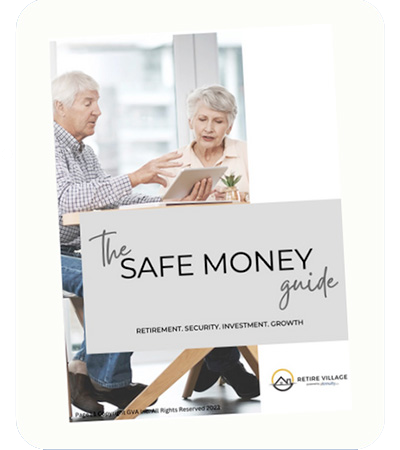
Article Library

Tim Davis
Davis Capital Corp.
Katy, TX
timothy.davis@agent.annuity.com
(281) 665-3133
Five Tips For Cybersecurity Consciousness
Five Cost-Free Cybersecurity Tips to Safeguard Your Retirement
Americans' top worries about crime today revolve around digital safety. The leading concerns include "having your personal, credit card, or financial information stolen by computer hackers" and "being the victim of identity theft." As the world shifts further into the digital realm, adapting to this new reality is not just for the tech-savvy; retirees are also at risk and need to be cautious. Here are five cost-free yet highly effective cybersecurity tips that require just a small investment of your time to help secure your financial future.
Create a Social Security Online Account
The Social Security Administration (SSA) advises you to create an online account to diminish the risk of someone else fraudulently doing so. Even if you are years away from claiming your benefits, creating an account will prevent identity thieves from claiming it in your name, should they obtain your Social Security number. Additionally, having up-to-date statements may assist your financial advisor in planning a more accurate retirement income strategy. If online verification poses a challenge, you can visit your local SSA office with identification to receive a one-time access code for setting up your online account.
Initiate a Security/Credit Freeze
Don't underestimate the power of a security/credit freeze with credit bureaus like Experian, Equifax, and TransUnion. By default, your credit files are open, which makes it easier for hackers to abuse. A security freeze locks down your credit files, requiring a unique PIN for any access. Since September 21, 2018, this service has been free, thanks to federal legislation, and offers more protection than credit monitoring or fraud alerts.
Utilize a Password Manager and Two-Factor Authentication
Password managers and two-factor authentication (2FA) can significantly enhance digital security. A password manager generates and stores complex, unique passwords for you. Websites like "Have I Been Pwned?" allow you to check if your email or password has been compromised in past data breaches. 2FA provides a second layer of security by using a phone's SMS or an authentication app like Google Authenticator.
Real-Time Credit Card Notifications
Financial security expert Robert Siciliano illustrates the importance of real-time credit card alerts. One day, he received a text notifying him of a $7 charge while his wife was not using the card. Had he not received the alert, the fraudulent charge might have gone unnoticed. This feature is generally free from your credit card issuer and may be an early warning system against unauthorized transactions.
Always Stay Vigilant
Last but not least, consistently keep your guard up. Scammers use various tactics, from posing as IRS agents to mimicking corporate executives in emails. Always be skeptical and never provide personal information unless you're confident of the recipient's identity and the reason for the request.
The world may be evolving rapidly, but that doesn't mean you can't take simple, practical steps to secure your financial future. Your peace of mind is well worth the modest time investment these steps require.
- Create an Online Account with SSA: Prevent others from fraudulently claiming in your name.
- Initiate a Security/Credit Freeze: Lock down your credit files with a unique PIN, free of charge.
- Use a Password Manager & Two-Factor Authentication: Boost your login security and keep hackers at bay.
- Opt for Real-Time Credit Card Notifications: Stay alert with instant updates on your card transactions.
- Stay Vigilant: Always question unexpected requests for personal information.
Many people have learned about the power of using the Safe Money approach to reduce volatility. Our Safe Money Guide is in its 20th edition and is available for free.
It is an Instant Download. Here is a link to download our guide:

Best Tips
For A Worry-Free
Retirement
The Safe Money Guide